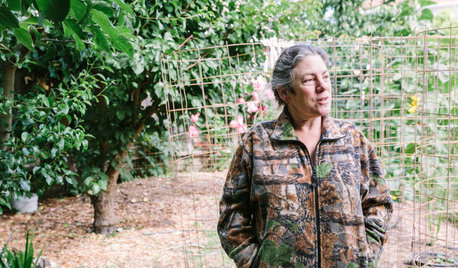Do you really believe this?
I saw an article about how Target is announcing a move towards sustainability.
As with so many of these lofty goals that these corporations announce, the time frame for it is sometime in the future. In this case, they are setting this goal for 2040!
Who is going to hold them accountable 20 years from now? It will be a case of too little and too late!
Who knows what will have happened to the world by then.
This is pure green washing and false promises.
The more immediate goal to address the plastic bag problem is close enough to see, but these other vague promises to do good for the planet are nothing but empty words.
As long as they continue to sell useless or harmful junk of all manner and unless Americans come to conclusion that they really dont need all of that stuff, it will be nothing but empty rhetoric, false promises, and probably some opportunity for Target to profit handsomely from it.
The best cure for anything is prevention. As long as America has a penchant for wastefull and usless stuff and junk fashion all wrapped and shipped in tons of plastic, nothing is really going to make a positive change.
2040?!!!!! Really? That will be way too late, way, way too late!!!!!
https://www.cnbc.com/2021/06/22/target-sets-sustainability-goals-net-zero-emissions-by-2040.html
Comments (110)
Kathsgrdn
2 years agoListened to a pod cast the other day and apparently Clorox is making a compostable cleaning wipe.
Elmer J Fudd
2 years agolast modified: 2 years ago"I'm suggesting they don't care about what an individual customer wants and will buy."
Well sorry, that's not hardly the case. Not in my experience of working inside companies producing goods and services. I never observed anything like that at all. I think you're carping from the sidelines, from the outside looking in.Crackpots and cranky one-off opinions, sure, the outliers are easily identified. But the nature and trend of comments are taken very seriously, and not just for retail products. Most companies owe their existences and success to listening carefully to customer requirements and producing what customers want.
What do you think marketing departments and marketing research are about? Why do you think the reports of customer meetings prepared by sales staff get so much attention?
And why C-suite people meet regularly with important customers. First question - how's your business doing? Second question - are we doing all we can to help you be successful? Have there been any issues or questions about what we provide to you, can we do better?
I think you're carping from the sidelines, from the outside looking in.Related Discussions
Do you believe some houses have bad energy?
Q
Comments (349)It's been a year since we moved into our house, and I do believe that there was bad energy in it at the beginning. After I posted here, I read more and decided to do some things to turn the energy around and it seems it worked! I think a big part of it was just working on my inner energy and bringing this up with my partner. He's not the type of person who would believe in bad energy and haunted places, but he agreed that something was off here and that we should try to do something about it. It can't hurt, right? I cleaned the whole house very thoroughly, and while I was doing it, I was repeating my intentions and good thoughts about the house and the life we want to build here. I also repainted some walls and added a few details that bring good memories. Then I bought sage and went through all rooms and corners to clear the air. It also helped when I added a few green plants that should clear the air. I think that adding something alive to the space helps, too. This was a newly built house and I don't think it was as bad as it could be with the houses that are here for generations and accumulating a lot of energy (good and bad), so that's why I think these small things we did, helped us to live happier here. I started to believe that places have energy when I was driving through Poland a few years ago and not even knowing where exactly I was, I started to feel that something is wrong and dangerous. We were actually passing by Auschwitz which we realized after a few minutes of that "feeling"... Maybe I'm the one who's more sensitive to this, but I believe that we all have some sort of antenna for these kinds of things, someone recognizes it, someone denies it....See Morediscipline advice
Q
Comments (3)It was relating something that happened a while back.....and I believe the point being made was that the mother was yelling at her child... What do you think he should have said instead? Linda C...See MoreHow do you know exactly what to believe?
Q
Comments (6)You need to go and see some real pools. Pebble Tec have large pebbles...so they have to tumble them. Stonescapes "mini" pebbles are smaller, like large sand granules...so it makes no sense to tumble something that is that small. Find a neighbor that has a pool with each. I have not seen Stonescape "regular" pebbles but I'm sure they are tumbled as well. No one gets these that I'm aware of though. Your doing an apple to orange comparison as it relates to "tumbling"....See MoreDo you honestly believe you can buy quality for $189.00?
Q
Comments (13)I'd have to agree. Generally, you are not going to touch a .25 for $400... You either need a very high-quality double pane, or a triple pane to reach that. Either way, a reputable company with a professional installation will be higher than that. In addition, beware of looking at U value only. The structural ratings as Sky mentioned should be considered, as well as the shgc. Often times, companies will sell a you a window that is totally inappropriate for your climate, such as a "solar control" package that is meant for warmer climates, but sold in cold climates where it should not be. They do this because the u-value looks great (lower numerically), but it is at the expense of a super low shgc (.18-.23 or so). This could actually be detrimental to overall efficiency.... This phenomenon started when the manufacturers were caught off guard by the 2009 30/30 tax credit qualifications which were completely illogical. Instead of a window with U .31 Shgc .30, you had to actually sacrifice efficiency and go with U .30 SHGC .23 (give or take) just so you could get your $1500 rebate... Big government at its best ;)....See MoreElmer J Fudd
2 years agolast modified: 2 years agoThat's true. A related sentiment is to suggest that blame or the root of alleged "problems" can be traced to clandestine nefarious conspiracies and attitudes that are untouchable. Conspiracy theorists. Actions suggested to be beyond the reach of anyone's actions or opinions, outside the law, but safe from any control by governments or law enforcement. Some can be quite laughable. If in doubt, make something up.
bragu_DSM 5
2 years agoplace target on my constantly growing list of places not to spend my money ... wishywashy at best
Toronto Veterinarian
2 years ago"I think you're carping from the sidelines, from the outside looking in."
Carping? LOL.......I haven't heard that term in a long time.
I know about marketing and customer research. I know about surveys and focus groups. I know about user statistics and demographics. In fact, I worked in sales research for a Canadian corporation for a few years, though I grew to hate it. (I had a whole other career before I became a vet. )
I make choices because of things that matter to me, but I don't think they're going to fix the problems that matter to me. I drive an electric car not because I think my refusing to buy gas will matter to "big oil" at all, but because I have decided I'm not going to be a part of supporting what they do. And because I can show others that they don't need to use fossil fuels to get around. I know my choices have an effect, but I don't think they have an effect on the company at the top. I'm a small piece near the bottom of the pile -- the only thing I can do is move the few pieces of the pile I'm in contact with.
Elmer J Fudd
2 years agolast modified: 2 years agoYour use of the term Big Oil that I suspect you intend to be disrespectful and disparaging is a give away about your biases. Small companies can't explore for, produce, or refine petroleum products. Would you be willing to pay twice as much or more for energy if that were the case? I doubt it.
Have a nice day, no need to discuss further.
I hope your attitude is better informed but equally contemptuous of environmentally damaging Canadian oil sands and shale activity.
carolb_w_fl_coastal_9b
2 years agoWhen a company sells millions of units of its products, what percentage of lost sales is going to make a difference to its profits? What is the number of conscientious objectors that would make a difference?
I agree, even when I take a stand and refuse to buy a mass produced product, there are still millions of others who will buy it. It's a drop in the ocean.
Boycotts are really not a very effective way of influencing corporate behavior.
Being conscientious about your own environmental choices is taking a moral, ethical stand, and good for the soul, but it's not truly changing the status quo.
Target making this announcement is part of a larger trend and that might actually make a difference, when it comes to climate. Plastic pollution is a different issue, and I do see some forward looking companies are changing packaging and practices as well.
wednesday morning
Original Author2 years agoElmer, and others,I think that the retail model of selling what the customer wants is an outdated model.
What I have seen over these last few decades is that the corporation molds the customer and has total control over the market. .
With the clever marketing of big corporations and manufactuters, they have created a very compliant consumer.
People do not provide for themselves as much as in the past with clohtes and food, for instance. Many people eat out or buy prepared products at the grocery. Most people do not sew or knit their own clohtes anymore, either These two things create a consumer who is at the mercy of what ever it is that the retailer wants to sell to you. In other words, most people are captive consumers, having access only to what a corporation wants to sell you.
What that corporation wants to sell you is the product that has the most profit margin and what is the easiest, for them, to market.
One example of this would be the fact that there are almost no woven fabric garments being sold in teh department stores, for women. These cheap knits that dominate the racks are much easier to sell to the general public with general sizing, because they are knit and they stretch, as opposed to a woven garment that is going to need facings, buttons, darts, and a more defined sizing. So, we go to the store and buy a cheap knit garment. Other people do the same until it becomes the norm, or the fashion. Soon, not only is this what we expect to find at the store, it becomes what we go to the store to buy. Just one example. There are many.
I worked in retail for a good number of years and I have seen the changes. And, I have seen how, in my lifetime, the general public (the "you's") have less of a mind to provide for themselves in any way, and have become almost entirely dependent on buying just about everything and are totally at the mercy of what it is that the corporations want to sell for the most profit.We think that we have choices, but the reality is that our choices are set and defined by what the large corporations want to sell us.
Yes, there are some trends that seem to originate from social media and some savvy marketer will notice and act on it . But, by and large, I really do think that the modern consumer is one that is molded by what "they" want to sell.
We are manipulated by marketing and we are willing consumers who think that each and every one of us is deserving of just about anything that brings some bit of trivial and passing favor to us,no matter the cost. We are NOT all that special.
Most of us live our lives under the influence of corporate entities and we flock to the stores to buy what they have convinced us that we want to buy, or what they have convinced us that we need, such as baby wipes, bottled water, cheap tshirts and any number of flavors of body wash, just to name a very few.
wednesday morning
Original Author2 years agoNo amount of decisons made by anyone is going to make it rain out West. No amount of money from the rich is going to make it rain. No amount of opinion about anything is going to make water fall from the sky.
No "Pollyanna" approach is going make water come out of your tap.
When science tells us that this is significant in scope, I take due notice of how serious it is.
We should have the same red flags up about the waste and consumption of resources and the destruction of the natural world.It seems that the two issues of extreme weather and growing mountains of garbage are not apart from one another.
Having expectations of living in the desert as if it were an Eastern woodland, and having the expectaion that we should have the choice of 20 different flavors of bottled water are both part of the larger picture. We can only delude ourselves for so long and so far until the reality becomes all too compelling.
wednesday morning
Original Author2 years agoKath, I understand that your comment about the Clorox company making compostable wipes was offered as a posititve. But, think about it a bit further.
The fact that they make wipes at all and that people buy them is evidence that the company has created a customer for the product.
I am 70ish and we never had such things and we survived quite well. Wipes of all manner are a scourage of the sewer treatment plants and landfills. The plastic dispenser that they come in adds another piece of garbage to the mountain. Then think of all the hidden costs of production and transportation of the product and the hauling away of the trash from the curb to the ultimate burial or burning of it and it is apparent that our relationship with the product is but one small part of the existence of that bucket of wipes. We dont see where it came from and we dont see where it goes after we have had our momentary interaction with it. All we see is what it does for us. You can do the same thing with a cleaning rag dipped in a mild solution. And, you can do the same with the same rag over and over. That is how it was before we were convinced that we needed something special to clean something.
The number of specialized cleaning products in the store is another aspect of this modern consuming life and another growth of special aisles. along with all the bottled water.
This is a good example of one of the things that many buy that are of questionable value, at best.In my opinion, that change for Clorox is just part of the green washing. They are really doing nothing to curb the crisis. I dont even buy the argument that they are creating awarness. What they are creating is a myth that they are the "good guy" in teh environment and that you shoiuld support them for it.
Support our planet, instead, and just dont buy into all of that, no matter how much they try to convince you that they are good for you. The only thing that these products are good for is to increase the bottom line profit. Dont be their dupe.
Toronto Veterinarian
2 years ago"Your use of the term Big Oil that I suspect you intend to be disrespectful and disparaging is a give away about your biases."
That I'm biased against "Big Oil" and am disrespectful and disparaging towards them? Yup. No need to be suspicious of that.....it's true. Their effect upon the world in social and political ways (beyond environmental) is huge and dangerous.
Zalco/bring back Sophie!
2 years agolast modified: 2 years agoTV, Big Oil forced no one to buy what they were selling. We all freely chose them over every single better alternative.
Wednesday, I wholeheartedly reject your assertion that corporations usurp people's ability to make decisions and mold consumers to their will. We have agency. Blaming our lack of forethought and inability to weigh risks and benefits for the greater good is on us, no one else. We do not live in a prison. (Some exceptions apply, like when corporations get away with lying about their products, like the Sacklers did with their pills, but Clorox wipes? Use some common sense already.)
Zalco/bring back Sophie!
2 years agolast modified: 2 years agoFrom Bryan Magee's book on Karl Popper, the 20C political philosopher:
Near the centre of Popper's explanation of the appeal of totalitarianism is a socio-psychological concept which he calls 'the strain of civilization' -- a concept related, as he acknowledges, to that formulated by Freud in Civiliation and its Discontents. We often hear it asserted that most people do not really want freedom, because freedom involves responsibility, and most people are frightened of responsibility. Whether or not this applies to 'most people' there is, I am sure, a vital element of truth in it.[3]
Elmer J Fudd
2 years agolast modified: 2 years ago"That I'm biased against "Big Oil" and am disrespectful and disparaging towards them? Yup. No need to be suspicious of that.....it's true. Their effect upon the world in social and political ways (beyond environmental) is huge and dangerous."
To free yourself from any reliance on petroleum products, you're going to need to go live in a cave somewhere and forage for food. All the food you eat, the products you buy and the containers they come in, the services you use, the fire truck that comes to save your house, the police that protect you, the housing you live in, and on and on ad nauseum depend on petroleum-sourced energy to do what they do. No fuel, no farming. No fuel, no product movements. No fuel, no municipal services no paved roads, etc.
Be outraged if you want but a narrow view seems ill informed.
raee_gw zone 5b-6a Ohio
2 years agoBig Oil forced no one to buy what they were selling. We all freely chose them over every single better alternative.
Well, there is the example of the influence it had on decision making re public transportation option close to a century ago - when many cities (including Los Angeles reportedly, and most notoriously) decided to abandon their streetcar service in favor of building more auto friendly infrastructure. Of course people were loving cars, but at that moment in time the vast majority did not own their own autos - losing the streetcars certainly boosted the auto (and therefore oil) industry.
Big manufacturers of all sorts have been fighting environmental protections tooth and nail ever since they were first proposed, for the sake of protecting their profit margins. After some 50-60 years, many changes could have been made to their processes that would comply with the need to minimize pollution, but it is only in the past couple of years that it seems any have gotten serious about it. In the meantime they managed to convince a large portion of the populace that environmental protections were too controlling, too onerous, too expensive, not worthwhile, a government power grab, restricting freedom and free enterprise....
carolb_w_fl_coastal_9b
2 years agolast modified: 2 years agoPlease. If marketing/advertising wasn't effective at persuading people to want and buy things, it would not be the billion$ industry it is. We are immersed in it. How many people are aware that the magazines, blogs, movies, and TV shows they enjoy have 'native' advertising, not just in the commercial breaks & ads? It really is everywhere - down to the garments and accessories celebrities wear in public appearances gratis.
The fish may not recognize the water it swims in.
Toronto Veterinarian
2 years ago"TV, Big Oil forced no one to buy what they were selling."
Well, duh. That's true for every company and manufacturer. That doesn't make them OK, or make their influence or their bad character any less than it is.
"a narrow view seems ill informed."
Narrow view? My view is wide.....globally, geopolitically wide. About how wars have been waged, perpetuated, won, and lost because of oil. About how human rights violations (and crimes) have been ignored because of oil. About how citizens are paying for the demise of their own countries' environment, economic stability, and electoral processes because the oil industry is getting billions in subsidies from their governments.
I'm not suggesting we can suddenly give up on using oil (and derivatives like gasoline), I'm suggesting we recognize what that there's more than one way to power a world......and we should not allow old habits to dictate future plans.
Mrs Pete
2 years agolast modified: 2 years agoThis is pure green washing and false promises.
Of course it is. Target is the exact opposite of sustainable. Target is mainly full of stuff we don't need. As you say, "As long as America has a penchant for wastefull and usless stuff and junk fashion all wrapped and shipped in tons of plastic, nothing is really going to make a positive change."
People are so concerned about the environment and those pesky plastic bags and straws. In Calgary, those bags can be recycled,
Probably not. Last year -- just before the pandemic began -- I went on a whole-day Teacher Workshop at the dump /recycling plant. Hands down, it was the best workshop I've attended in my teaching career.
They talked a lot about plastic. Glass and aluminum are easily recycled, and it's genuinely re-used just as we, the public, imagine it is. But plastic mostly can't be re-used /turned into something else. Much of the plastic we put into our recycling bins is actually sold to other countries for long-term storage -- and that's not sustainable in any way. Google it -- you'll find loads of articles.
They also taught us about which types of plastic are recyclable. It changes based upon who is willing to take it, and you can't trust what's on the bottom of the container. Plastic wraps -- store bags, the wrap that surrounds toilet paper, potato chip bags, etc. -- can be returned to the grocery store, but it can't go into your home bin. A water bottle takes 450 years to disintegrate (not sure how they know that since no water bottle is 450 years old), and most of them are shredded and sent overseas. Every ziplock you've ever discarded, every straw you've ever used -- still exists somewhere. It probably looks something like this in some third-world country:

Plastic recycling is a lie. We need to get serious about our plastic use.When you choose to live in the country, you choose to forego many conveniences.
Regardless of HOW your recycling is picked up, most of that stuff is not turned into new items.
Where I live, plastic detergent containers are specifically mentioned as adequate sharps containers ... Many of us here 'update' (by buying new) clothing and furnishings which while perfectly adequate seem 'dated'.
You've heard it before:
- Refuse (to buy unnecessary things)
- Reduce the amount you use
- Reuse what you can
- Recycle when the other options are not possible
Yes, using detergent containers for sharps is a good idea, but all the diabetics in the world can't use the plastic detergent containers that are cluttering our laundry rooms -- and most diabetics don't require shots of insulin; most only use one tiny lancet per month for blood glucose testing. A better option is to buy your detergent in a cardboard container, which will disintegrate in a reasonable amount of time.
Yes to refusing to discard furnishings or clothing just because they're "old".
Some clothing -- polyester, rayon, for example -- sheds microfibers of plastic into the water supply when it's washed. Not many things we need more than clean water, and sticking to simple fabrics like cotton can protect our water.
But, the real gorilla in the room is the fact that so many consume so very much, and much of that is purely optional to living a good comfortable life in a clean home and having what is needed for a full life.
What the consumer needs to participate in is moderation and a more enlightenend set of expectations that places need above desire. So much of that in the recycling bin offered no more than a sliver of pleasure or convieninc, at best.. Certainly, it was not worth the fact that the residue from that moments pleasure wil result in something that sits in a landfill.....till the end of time. There are no cheap thrills. All of those cheap thrills come at a huge hidden expense.
Well stated.
Why are consumers the ones expected to shoulder the responsibility of cleaning up after manufacturers? The sheer volume of products is way beyond anything we could ever make a dent in on our own.
You're right -- what we individuals can do is limited.
But one of the best things we can do is complain to companies who are polluting the world with plastics. One thing I learned at the recycling center: The #1 producer of plastics that end up in dumps /recycling centers is Coke. When asked WHY they don't make changes, they say, "Our consumers aren't complaining, and they continue to buy plastic bottles -- clearly they're okay with our choices."
What I have seen over these last few decades is that the corporation molds the customer and has total control over the market. .
With the clever marketing of big corporations and manufactuters, they have created a very compliant consumer.
Agree, but we don't have to keep our heads in the sand.
To free yourself from any reliance on petroleum products, you're going to need to go live in a cave somewhere and forage for food. All the food you eat, the products you buy and the containers they come in, the services you use, the fire truck that comes to save your house, the police that protect you, the housing you live in, and on and on ad nauseum depend on petroleum-sourced energy to do what they do. No fuel, no farming. No fuel, no product movements. No fuel, no municipal services no paved roads, etc.
Regrettably true. I don't have a way to feed my family except to bring plastics into my house, but I can reduce the amount I buy. I can buy sodas in aluminum cans instead of plastic, cookies in a bag instead of a bag + a tray, refuse to buy highly-packaged items like Lunchables or individual applesauces.
I can't change the world, but I can make a difference in my own use.
Someone brought up politics -- as a staunch Independent, I thoroughly despise both the Democrats and the Republicans, both of which exist only to perpetuate their own power, not to serve the people. This is an issue that needs to transcend the aisle; ignoring it will not help the problem.
Zalco/bring back Sophie!
2 years agoTV, I am loathe to point piut that though your rhetoric is quite elegant and thoughtful, you fail to address the main point of my comment,
We all freely chose them over every single better alternative.Toronto Veterinarian
2 years ago"People are so concerned about the environment and those pesky plastic bags and straws. In Calgary, those bags can be recycled,
Probably not. Last year -- just before the pandemic began -- I went on a whole-day Teacher Workshop at the dump /recycling plant......They talked a lot about plastic. Glass and aluminum are easily recycled, and it's genuinely re-used just as we, the public, imagine it is. But plastic mostly can't be re-used /turned into something else.
A lot of this is very location-dependent, and I encourage everyone to research the way their community (or company) actually recycles. Some places accept and recycle different things based on their budget and equipment choices. Plastic bags are recyclable in some locations and can be made into new things (including new plastic bags), but apparently it requires some special equipment to handle such thin material. Those processors can recycle the plastic into plastic pellets, which are then used to make other plastic products (from pails to shipping pallets to composite "lumber" furniture).carolb_w_fl_coastal_9b
2 years agolast modified: 2 years agoMost recycling facilities do not want people putting plastic films like bags into the bins because they jam the sorting equipment and make for costly delays and repairs.
And yes - just because a plastic container has the recycling symbol on it does not mean it's recyclable. There are really only 2 numbers that are recycled consistently: #1 . Industry calls it 'wish-cycling' when people put things that are not actually recycled into their bins.
The number I'm seeing lately is 90+% of plastic that is not being recycled.
Here is a detailed article about current developments in recycling measures:
Can We Trust Corporations To Deal With Their Own Waste?
"On June 3, the World Wildlife Fund and the American Beverage Association issued a joint memo on the dangers of overproducing and under-recycling plastics, which include contributing sizably to climate change and filling our world with plastic pollution.
It was an odd marriage: WWF is a champion of ecological causes and the ABA represents multibillion-dollar corporations like Coca-Cola and PepsiCo. ABA appeared to be telling on itself when it comes to the industry’s abundant waste.
The memo endorsed a different kind of recycling policy known as extended producer responsibility, or EPR, which makes corporations responsible for recycling the products they produce, rather than towns and taxpayers. The logic is that it will push companies to design more sustainable products to avoid costs.
Businesses haven’t exactly lined up to participate in EPR schemes in the past, given that its central idea is making them responsible for all their waste. But that’s started to change, says John Hocevar, the oceans campaign director at Greenpeace. “With so much concern around plastic pollution, they have, for the most part, realized that they can’t just be against everything.”
Now the ABA finds itself on the same side of the issue as leading environmental organizations like Greenpeace, Surfrider and some chapters of the Sierra Club. It’s certainly not the typical acrimonious dynamic between big business and environmentalists, exemplified by the Sierra Club’s June 16 announcement that it is suing Coca-Cola for misleading consumers about its recycling practices.
Both the big environmental groups and the ABA seem to agree that EPR is the solution to America’s growing pile of plastic. But other sustainability advocates are convinced that something is off here and that EPR’s fans in the business world are just taking advantage of an opportunity to undermine the whole recycling system...."
wednesday morning
Original Author2 years agoZalco, we, as consumers are not presented with "every single better alternative". If we were presented with such alternatives, more might choose an alternative.
What most people are left to choose from is only what the corporations want to sell to you.
And, what they want to sell you is the stuff that is made cheaply and that you will buy over and over again. They done make any profit if the sell you a quality item that is going to be durable. They need you as a repeat and continuous customer.
The only real choice that most of us have is to buy it or not buy it.
I chose to NOT buy as much as possible.
For many things I am not convinced that a better alternative exists.
Look at the example of buying an appliance, for instance. It matters not if it is a coffee maker or a washing machine.
What you will find is that there is a cheap model and a more expensive model. You might logically conclude that the more expensive one is going to offer better quality. But do you know that? How does the consumer know that there are better quality electronic components in that more pricey one? How is the consumer to know if the housing around it is better plastic or it it has metal in the working parts or more cheap plastic? They dont know, at all.
It has been my experience that a more expensive model is the more expensive one because it offers more "features", and not because if offers better quality of materials.
We are rarely offered a better alternative.
The best alternative that most of us have is to just NOT buy it.
There is a good life to be had without vulnerable and disposable coffee makers and strawberry scented body wash.
Just say "NO" to so many needless and useless and damaging consumer items.
There really is a good, clean and full life beyond all that mindless consumption.
lucillle
2 years agoHow does the consumer know that there are better quality electronic components in that more pricey one? How is the consumer to know if the housing around it is better plastic or it it has metal in the working parts or more cheap plastic?
There are tons of sites with reviews of particular items. And here on the KT, people will often ask for other people's experienced with a particular appliance.But often, consumers will just buy what is cheapest at the time. Manufacturers know this, and in order to provide the cheap model the consumer wants, will of necessity cut corners to lower production cost.
lucillle
2 years agoWednesday, I wholeheartedly reject your assertion that corporations usurp people's ability to make decisions and mold consumers to their will. We have agency. Blaming our lack of forethought and inability to weigh risks and benefits for the greater good is on us, no one else.
^^This. There are choices and consumers should weigh them. That they sometimes don't reearch, and instead buy on impulse or just buy the cheapest, is not the company's fault.. In addition, consumers do have the choice to abstain from buying.Toronto Veterinarian
2 years agolast modified: 2 years ago"Zalco, we, as consumers are not presented with "every single better alternative". If we were presented with such alternatives, more might choose an alternative.
What most people are left to choose from is only what the corporations want to sell to you."
Yes, it is not easy to find (and sometimes impossible to use) "every single better alternative" - because of the huge amount of political power wielded by major producers and their sector lobbyists. Anyone who thinks that companies will put out what people demand is fooling themselves - they'll put out what makes them most money and people are willing to buy (which is different than what they're wanting to buy). And if they're willing to buy it because it's 98% of what's available to them (so it's easy to find, easy to use, and at competitive prices), the company is happy.
It took decades and decades longer than it should have for electric cars to become more than token amusements in the US, not because people don't like or want to drive electric cars, but because the oil industry and government promoted them as failed technology, and made them difficult to get and power them......even government's efforts at keeping gas prices artificially low has helped promote gas cars over electric.
They're far from the only industry doing that -- high fructose corn syrup as a sweetener is another huge offender, going so far as to get the government to increase tariffs on sugar so that their HFCS would be significantly cheaper for companies to use and the use of sugar in everything from soda pop to ketchup to pastries. For 50 years, it was almost impossible to find some types of products with sugar instead of HFCS (especially if you didn't live in a big city with niche gourmet shops).
carolb_w_fl_coastal_9b
2 years agoIndeed - it appears some people, including policy makers, really believe that everybody has access to the internet to research all the products they buy - and that everybody even knows how to do that. Isn't that a.k.a. 'fallacy of composition'?
Zalco/bring back Sophie!
2 years agolast modified: 2 years agoTV, When it comes to enegry we most certainly were presented with better alternatives from nuclear power to heat and cool our houses to mire intelligently built, higher density communities with easy reach to public transport and walkability. We rejected nuclear out of anti science fear mongering, we reject higher density communities out of a desire for more square footage or he desire to keep property values high.
Ignorance is no excuse. The consequences fall on your head whether you accept responsability or not.
PS I'll answer more about your post later. But seriously calling electric cars token amusements in the US is ludicrous. The government has spent a fortune giving people incentives to buy electric cars and the incentives have worked like a charm. Where I live, I look like a freak for still driving a regular car. Furthermore electric cars need a clean energy source at the point of plug in, and fortunately we are getting cleaner and cleaner energy, though of course what we wasted and destroyed by demonizing nuclear energy is irrecoverable at this point.
Zalco/bring back Sophie!
2 years agolast modified: 2 years agoCarolb, I would argue that those who cannot access much information for want of an internet connection, or illiteracy are probably not making a lot if buying decisions.
Zalco/bring back Sophie!
2 years agoWednesday, I agree about choosing not to buy being the best choice many times. I disagree about a lack of information or selection.
nickel_kg
2 years agothose who cannot access much information for want of an internet connection, or illiteracy are probably not making a lot [of ] buying decisions.
I think that's kind of the point. Such people need food, shelter, transportation, etc, too. How many choices do they have?
raee_gw zone 5b-6a Ohio
2 years agoThe tide turning against nuclear power was not just fear-mongering, but also because there were real accidents, growing distrust that the companies who would run the reactors wouldn't cut corners, become complacent, allow sloppy adherence to protocols etc, (based on real whistleblowers and investigations), problems with what to do with growing stockpiles of spent fuel, and the realization that even with everything done right, the reactors have a limited life span before requiring decommissioning (initially 20 years, now up to 40+, I believe). Once decommissioned the former plants still have hazards, including contamination of their sites.
Zalco/bring back Sophie!
2 years agoRae, compare lives saved from clean, non greenhouse gas emitting nuclear energy and lives lost from fossil fuels and the answer is clear. Fear mongering and anti science worked their magic on a guillable people. Add the victims of nuclear nuclear bombing into your equation and you are not even remotely close to the damage done by fossil fuels to the environment and consequently us.
raee_gw zone 5b-6a Ohio
2 years agoI am not disputing the bad of fossil fuels, but it really shouldn't be an either/or discussion, nor was it anti-science or fear mongering. Nuclear waste and contamination is reality - and is science. Nuclear waste and contamination deserves a healthy fear - and that is science also. As I mentioned previously, if energy producers (along with other industries) had gone to work on innovations to reduce/eliminate their pollution, or find other technology (or more aggressively upscale solar, for example) 50-60 years ago, instead of whining and fighting the concept, we would be much farther ahead.
Zalco/bring back Sophie!
2 years agolast modified: 2 years agoBasically, we agree. If the world fixed this problem long ago, we would't have the problems we have now. But, that is greed, no one was willing to give up a dollar then, when that loss could be passed to future generations.
As for nuclear waste, it really isnt that much of a problem. Designate a sinlge place and send it all there. Sure it will make a mess locally, but many orders of magnitude less than what damage is done by fossil fuels to the whole world. The problem is that no one wants that place to be in their state, despite the fact they would never get hurt if it was even in the next valley over.
Zalco/bring back Sophie!
2 years agolast modified: 2 years agoPS Rae, stepping away from GW/Houzz for a bit, not ignoring you if you respond.
Elmer J Fudd
2 years agoYeah, I stepped away from this conversation too. More of a water balloon battle than a conversation, some choose to not listen and just repeat what I suspect are sincere but sometimes emotional and misinformed views.
wednesday morning
Original Author2 years agoWhen it comes to making an assessment of quality in a consumer item, it is difficult to get real information about the product. Most information centers around the various features of the item, as opposed to the quality of what is on the inside. Most of us have only that level of information to go on.
I stand by my assertion that corporations have become very effective at molding and producing the market for so many things. They find something like body wash, or Kerurig cups, or cleaning wipes and set about convincing consumers that these things play a role in thier lives and are needed.The bottled water and vitamim water and all of those other silly things are another good example. They found a cheap product and marketed it aggressivley until the consumer began to consider it to be necessary. Now we dont even get thirsty anymore. We need to be "hydrated". That puts it into the catagory of being a need of greater importance than just being thirsty.
Clever marketing has come a long way and we are very vulnerable to it.
I really dont think that the old model of giving the customer what they want is the only game in town anymore. Now, they have become expert at creating a market for what ever they want to sell. Tap water in plastic bottles was a no brainer for them. They are successful at creating a percieved need. We did not need this. They needed to sell something profitable, so they did.
Anyway, I dont believe, for one minute, that we can solve our environmental and waste problems with trying to find more acceptable ways to continue to consume all that we do consume.What we need to change is our own consuming expectations. There is no sustainability to be found in these new "green" promises that these corporations are marketing to us. All we have here is just more marketing and false promises to do better at some point in the future.
Toronto, you are right that these companies dont know or care that I dont engage with them. But, I know.lucillle
2 years agoWhen it comes to making an assessment of quality in a consumer item, it is difficult to get real information about the product. Most information centers around the various features of the item, as opposed to the quality of what is on the inside. Most of us have only that level of information to go on.
I am a senior, not a whiz bang millenial that is at home on the internet. But I feel very comfortable researching products and reading reviews and asking others about their experiences. It is absolutely not difficult to find good information about many products.
Zalco/bring back Sophie!
2 years agolast modified: 2 years agoWouldn't it be wonderful if everyone else was exactly like that?
I would rather have my society built around the notion of competence, as Lucille demonstrates, rather than incompetence, as Carol suggests. Only dystopias are built around imaginary imbiciles in need of an overlord.
NB At some point, in a democracy, you have to accept what people say they want via the ballot box and their spending.
wednesday morning
Original Author2 years agoYes, Lucille, the only real choice we can make is to buy or not buy.
For so very many things that we seek to buy there is going to be not much comprehensive information to be had.
I found that consumer reports offered scant real information about many things. Instead, centering on things like price, features and repair statistics. Those are not the things that are helpful.
I do like the reviews on Americas Test Kitchen for kitchen things, but that is limited.
lucillle
2 years agoYes, Lucille, the only real choice we can make is to buy or not buy.
That is simply untrue. There are entire threads here on KT devoted to comparisons of different brands of microwaves, or air fryers, or quality paints, or all sorts of household items.
The only real choice that most of us have is to buy it or not buy it.You said this 3 days ago and again yesterday. I'm beginning to wonder whether you are simply repeating your opinions without really addressing what others are saying.
For so very many things that we seek to buy there is going to be not much comprehensive information to be had.As I said the first time you said this, I have been able to find plenty of information for the vast majority of things I research. I can only conclude that you have not learned how to do the research that would bring answers to the questions you seek. Many here have demonstrated that they have acquired the ability to research an compare.
nickel_kg
2 years agoplenty of information vs comprehensive information ... I can see both sides. It's easy to search the web for product reviews. Mostly those reviews center on questions of "did you like it, does it work well, would you buy it again". That is useful information, if you take it with a grain of salt and consider the source. It's easy enough to look up how much energy an appliance uses or what mileage a car gets (in test lab conditions) and it's easy to read the "fair trade" write up on coffee beans or chocolate bars. But it's harder to find much else to guide you in making socially or environmentally conscious choices. That car or refrigerator: how many components were made where vs being assembled here or there, how destructive was it to obtain the raw materials, how much energy was expended in the whole process from raw material to manufacturer to assembler to logistics to your household.
Most of us (people participating in this discussion) have the where-with-all to make choices in our daily lives. If we don't get every choice "right" due to it being a darn hard complicated problem to understand fully, let alone verify that what we are told is factually true, that's understandable. If we simply don't care about the environment or the social issues of our fellow persons, that's a shame.
carolb_w_fl_coastal_9b
2 years agolast modified: 2 years agoForgive me, but it seems that there seems to be a lack of consideration for the realities of human existence, diversity and behavior. There are millions of people who do not have the same levels of education, wealth and capabilities that the select few represented here do. Many people do not have access to the internet, and even if they did, they do not have the time or education required to research their purchases. My previous comment was referring to the fact that we are a small, somewhat elite group of people posting here and don't represent a majority of people in our country and in the world at large.
So yes it would be nice, but it's a fantasy. If we really want change in the status quo, reality needs to be acknowledged, IMO.
Zalco/bring back Sophie!
2 years agoCarol, Where you hear a lack of consideration, I hear condescention.
althea_gw
2 years agoOn the good side ...
"Seventy-two percent of U.S. consumers said sustainability is somewhat important or important when making purchase decisions, according to the results from the EY Future Consumer Index. The survey gathered information from 1,001 U.S. respondents and more than 14,000 global respondents in May.Consumers are so committed to sustainability that 30% said they are spending more on products that are sustainable and better for the environment and 31% said they plan to increase purchasing sustainable products in the next 12 months."
As far as the goal of "net zero", sheer hype. If they really wanted to do something meaningful, they would aim for net negative within 1 - 2 years. Net zero only means somebody somewhere is looking for a techno fix so the current consumption of cheap plastic products can remain as is if not grow, with behind the scenes math showing realistic progress.martinca_gw sunset zone 24
2 years agoIve not read all responses…apologies. This from the op i see and lament on most every shopping expedition. Agree 100%!!!
What that corporation wants to sell you is the product that has the most profit margin and what is the easiest, for them, to market.One example of this would be the fact that there are almost no woven fabric garments being sold in teh department stores, for women. These cheap knits that dominate the racks are much easier to sell to the general public with general sizing, because they are knit and they stretch, as opposed to a woven garment that is going to need facings, buttons, darts, and a more defined sizing. So, we go to the store and buy a cheap knit garment. Other people do the same until it becomes the norm, or the fashion. Soon, not only is this what we expect to find at the store, it becomes what we go to the store to buy. Just one example. There are many.
I worked in retail for a good number of years and I have seen the changes. And, I have seen how, in my lifetime, the general public (the "you's") have less of a mind to provide for themselves in any way, and have become almost entirely dependent on buying just about everything and are totally at the mercy of what it is that the corporations want to sell for the most profit.
We think that we have choices, but the reality is that our choices are set and defined by what the large corporations want to sell us.
Toronto Veterinarian
2 years ago"We think that we have choices, but the reality is that our choices are set and defined by what the large corporations want to sell us."
Yeah, well, we also think we have privacy.
I learned that lesson (about clothing) a long time ago, as I do not have a fashionable shape or size, and it's virtually impossible to buy anything else. I used to joke with people about how shoppers couldn't be unfashionable if they tried. However, what was a surprise was how much trouble I had finding anyone willing and able to alter clothing to fit me, or even make me clothes (other than ball gowns, or business suits). I was over 50 before I got a lead on someone who could take in my pants properly - or at least someone who would admit they could do it.
wednesday morning
Original Author2 years agoOpinions and experiences that others have with a product really does not add much to judging the real quality of anything. That is a bit like compairing believe to fact.
Subjective opinion is not the same as objective fact.
Someone liked the features, the price, the color choices, etc. But that tells you nothing about the materials that it was made from, how good is that little mechanism in there that makes it come on.
I had a shop vac that stopped working and when I took it apart to see if it could be fixed, what I found that is was one very small, but very important, little piece of metal that broke. Just one darned little tiny piece of metal that made a connection that could no longer be made because it had given way. And, there was no way to replace that little piece of metal that was part of a larger piece. One very little piece of metal broke and the whole darned thing had to go! There simply was no way to replace or repair that part.
That, right there, is the kind of information that you just can not know. How do I know that the one that I am replacing it with does not have that same weak spot? I cant know that.
That is just one example, but you can apply the same to many, many other consumer items.You dont know if that new washing machine has nylon gears or metal gears.
You dont know if that control panel can be replaced if it goes out.
You dont know it that coffee maker has a more substantial heating element than the one next to it.
A truly quality item has to have it's quality defined by more that choice, style and price and features and whether, or not, the customer was thrilled with the purchase.
For my definition of quality I require some deeper knowledge and assessment of an item.
Our consumer items are made using so many differnet sources with so many variables involved. That makes it very difficult to determine much about it other than superficial features. I can sit at my computer all day googling about some consumer item and it is unlikely that I will ever find real qualitative information about it. That is all propriitary information that is not made public.
As many people will rate it as a quality item as those who will condemmn it as a piece of junk that no one should every buy. It is mostly subjective opinion and nothing much more of any substance or objective fact.














raee_gw zone 5b-6a Ohio